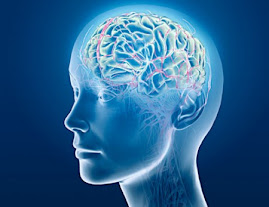Scientists are beginning to uncover evidence that meditation has a tangible effect on the brain.
Skeptics argue that it is not a practical way to try to deal with the stresses of modern life.
But the long years when adherents were unable to point to hard science to support their belief in the technique may finally be coming to an end.
When Carol Cattley's husband died it triggered a relapse of the depression which had not plagued her since she was a teenager.
"I instantly felt as if I wanted to die," she said. "I couldn't think of what else to do."
Carol sought medical help and managed to control her depression with a combination of medication and a psychological treatment called Cognitive Behavioural Therapy.
However, she believes that a new, increasingly popular course called Mindfulness Based Cognitive Therapy (MBCT) - which primarily consists of meditation - brought about her full recovery.
It is currently available in every county across the UK, and can be prescribed on the NHS.
One of the pioneers of MBCT is Professor Mark Williams, from the Department of Psychiatry at the University of Oxford.
He helps to lead group courses which take place over a period of eight weeks. He describes the approach as 80% meditation, 20% cognitive therapy.
New perspective
He said: "It teaches a way of looking at problems, observing them clearly but not necessarily trying to fix them or solve them.
"It suggests to people that they begin to see all their thoughts as just thoughts, whether they are positive, negative or neutral."
MBCT is recommended for people who are not currently depressed, but who have had three or more bouts of depression in their lives.
Trials suggest that the course reduces the likelihood of another attack of depression by over 50%.
Professor Williams believes that more research is still needed.
He said: "It is becoming enormously popular quite quickly and in many ways we now need to collect the evidence to check that it really is being effective."
However, in the meantime, meditation is being taken seriously as a means of tackling difficult and very modern challenges.
Scientists are beginning to investigate how else meditation could be used, particularly for those at risk of suicide and people struggling with the effects of substance abuse.
What is meditation?
Meditation is difficult to define because it has so many different forms.
Broadly, it can be described as a mental practice in which you focus your attention on a particular subject or object.
It has historically been associated with religion, but it can also be secular, and exactly what you focus your attention on is largely a matter of personal choice.
It may be a mantra (repeated word or phrase), breathing patterns, or simply an awareness of being alive.
Some of the more common forms of meditative practices include Buddhist Meditation, Mindfulness Meditation, Transcendental Meditation, and Zen Meditation.
The claims made for meditation range from increasing immunity, improving asthma and increasing fertility through to reducing the effects of aging.
Limited research
Research into the health claims made for meditation has limitations and few conclusions can be reached, partly because meditation is rarely isolated - it is often practised alongside other lifestyle changes such as diet, or exercise, or as part of group therapy.
So should we dismiss it as quackery? Studies from the field of neuroscience suggest not.
It is a new area of research, but indications are intriguing and suggest that meditation may have a measurable impact on the brain.
In Boston, Massachusetts, Dr Sara Lazar has used a technique called MRI scanning to analyse the brains of people who have been meditating for several years.
She compared the brains of these experienced practitioners with people who had never meditated and found that there were differences in the thickness of certain areas of the brain's cortex, including areas involved in the processing of emotion.
She is continuing research, but she believes that meditation had caused the brain to change physical shape.
Buddhist monks
In Madison, Wisconsin, Dr Richard Davidson has been carrying out studies on Buddhist monks for several years.
His personal belief is that "by meditating, you can become happier, you can concentrate more effectively and you can change your brain in ways that support that."
In one study he observed the brains of a group of office workers before and after they undertook a course of meditation combined with stress reduction techniques.
At the end of the course the participants' brains seemed to have altered in the way they functioned.
They showed greater activity in the left-hand side - a characteristic which Davidson has previously linked to happiness and enthusiasm.
This idea that meditation could improve the wellbeing of everyone, even those not struggling with mental illness, is something that is exciting researchers.
Professor Williams believes it has huge potential.
"It involves dealing with expectations, with constantly judging ourselves - feeling we're not good enough," he said.
"And, that is something which is so widespread in our communities.
"All of these things are just thoughts. And, they will come up in meditation and learning to recognize what they are as thoughts, and let them go, can be enormously empowering for anybody."
There is, of course, a distinct possibility that this research will come to nothing and that interest in meditation will turn out to be a passing fad, but for now this ancient discipline is being taken seriously by scientists as a tool with potential to make each one of us happier and more content.
Subscribe to:
Post Comments (Atom)



No comments:
Post a Comment